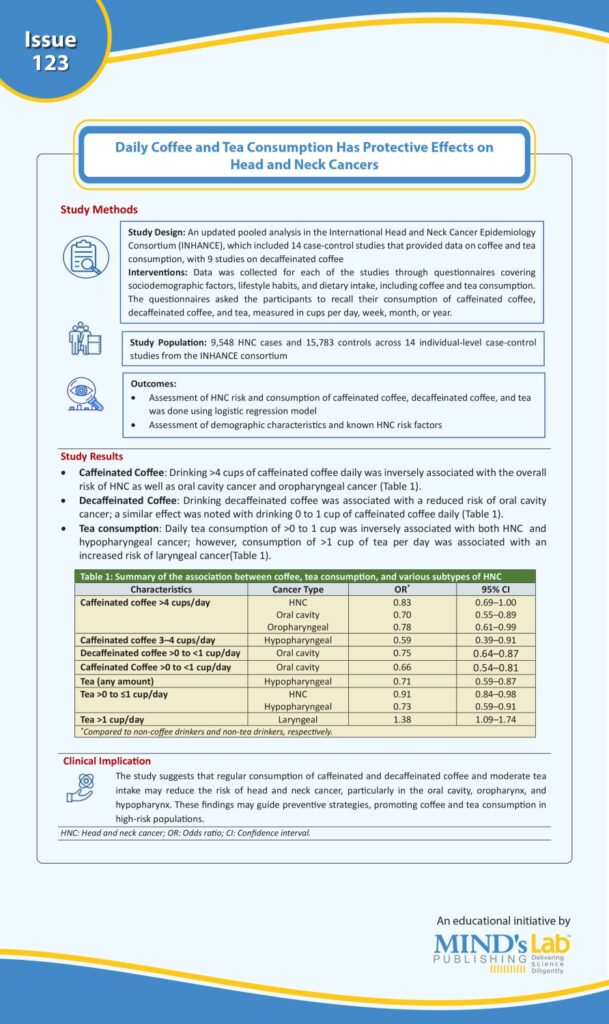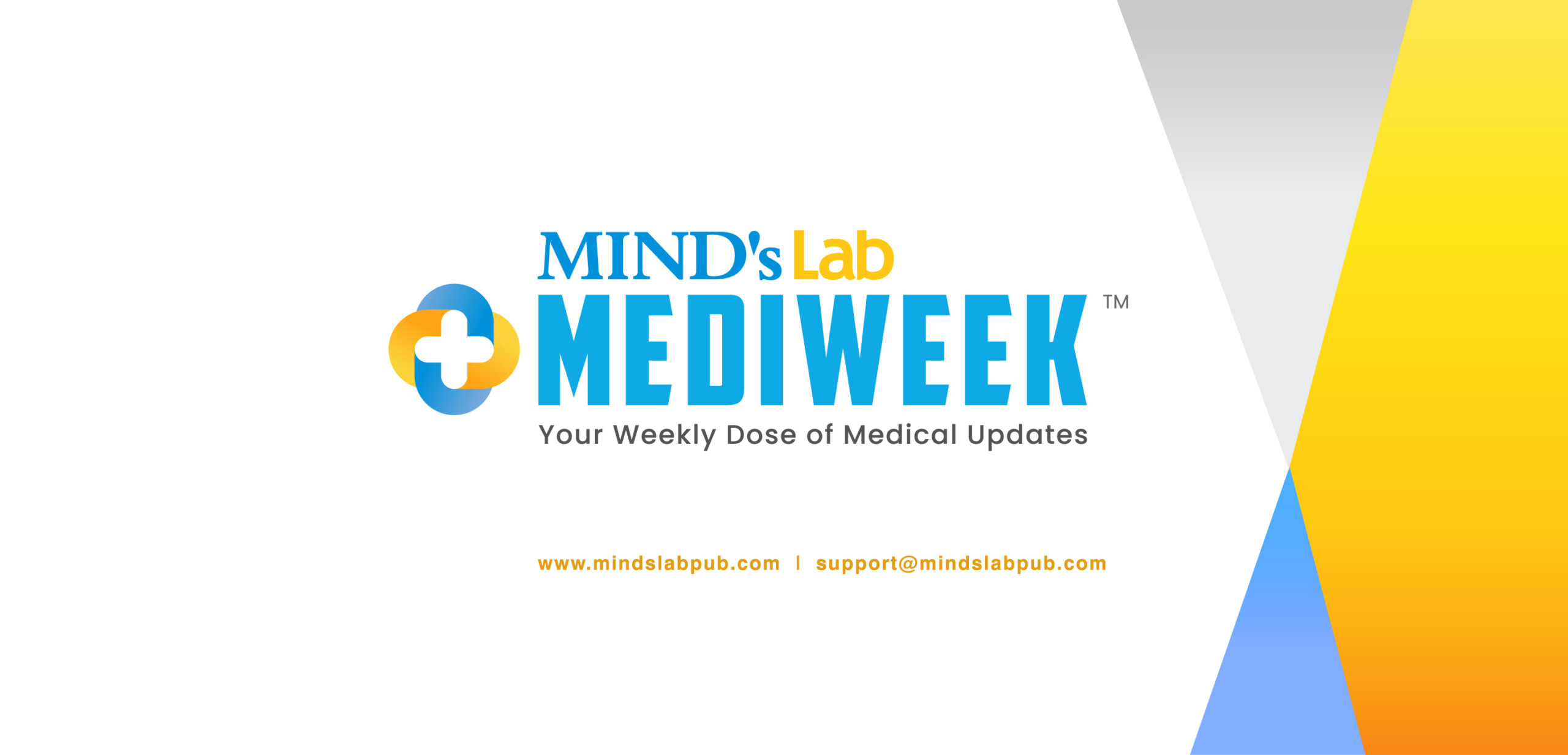
Head and neck cancers (HNC), which include cancers of the oral cavity, pharynx, and larynx, is the 7th most common cancer globally, with a high burden in low- and middle-income countries. Though the overall rates of HNC are declining in high-income countries, the incidence of oropharyngeal cancer is rising, largely due to human papillomavirus infections. Tobacco and alcohol are known risk factors, but the effects of dietary factors like coffee and tea remain unclear.
Coffee and tea are popular beverages containing bioactive compounds such as caffeine, polyphenols, and flavonoids, which may have antioxidant, anticancer, and anti-inflammatory benefits. Numerous studies exploring the potential link between coffee consumption and the risk of HNC, have shown an inverse relationship between coffee intake and the risk of oral cavity and pharyngeal cancers, suggesting that coffee may have protective effects against these types of cancer.
A study by Nguyen et al., published in the journal of “Cancer”, investigated the association between coffee and tea consumption, and the risk of HNC. The analysis included data from 9,548 HNC cases and 15,783 controls across 14 case-control studies from the INHANCE consortium. The results showed that drinking >4 cups of caffeinated coffee daily was inversely associated with HNC, oral cavity, and oropharyngeal cancers. Tea consumption (up to 1 cup daily) was also inversely linked to hypopharyngeal cancer and HNC. In conclusion, the study supported the finding that coffee and tea drinkers had a reduced risk of HNC, with the most notable protective effects observed for oral cavity, oropharyngeal, and hypopharyngeal cancers (See graphic).

(Source: Nguyen T, Koric A, Chang CP, Barul C, Radoi L, Serraino D, Purdue MP, Kelsey KT, McClean MD, Negri E, Edefonti V. Coffee and tea consumption and the risk of head and neck cancer: An updated pooled analysis in the International Head and Neck Cancer Epidemiology Consortium. Cancer. 2025;e35620. DOI: 10.1002/cncr.35620)
